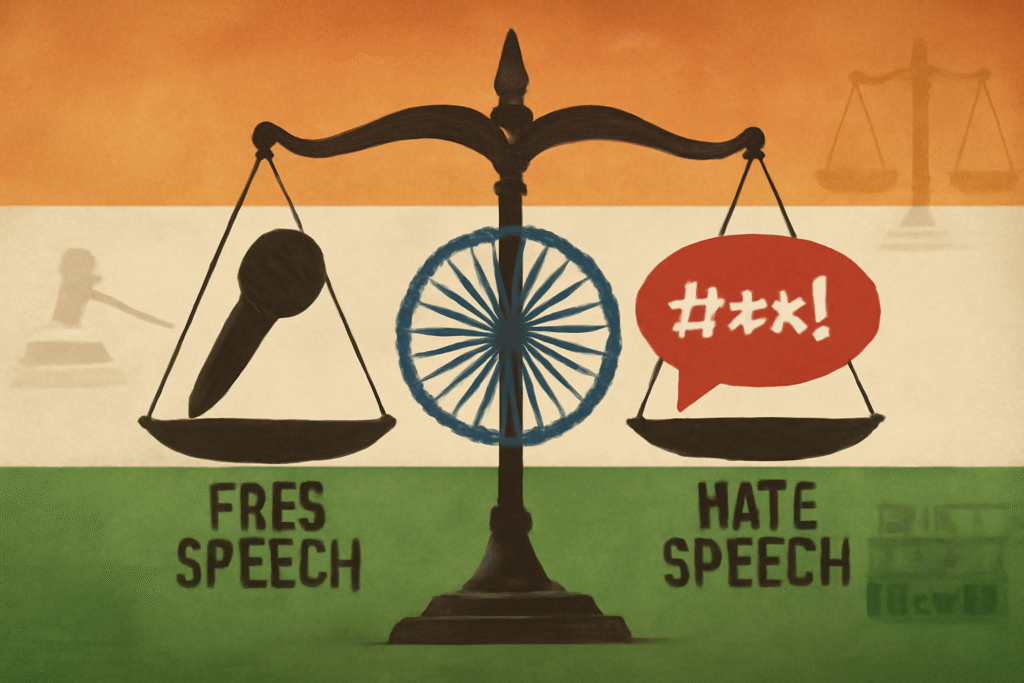Published on: 26th December 2024
Authored by: Saloni Agarwal
Bharati Vidyapeeth (Deemed to be University) New Law College, Pune
Burger King Corpn. V. Anahita Irani & Anr. (2024)[1]
Introduction
Intellectual Property Rights (IPRs) are legal protections granted to individuals or organizations so as to safeguard their intangible creations and innovations. These rights foster an environment in which a person can freely show their creativity, innovation and also allow them to reap economic benefits from the same. In India, there are seven types of intellectual property rights, i.e copyrights which protects the original work in literature, music, films granting creators exclusive rights to reproduce, distribute their original work. Patent provides exclusive rights to inventors for their inventions. Trademark is recognizable sign or symbol that is used in identifying and distinguishing products or services of one business from other, giving individual identity. Geographical Indications is a label used on products that have a specific geographical origin, exhibit qualities and characteristics that can be directly linked to that location. Industrial designs or just known by the name design that protects any two- or three-dimensional patterns or shapes. Trade secrets are some practices that is secretive to the company itself and not known by the general public to gain a competitive advantage over their rival companies. Lastly, plant varieties are a type of IPR that provides exclusive rights to a person who is a breeder of registered variety. All these are governed by specific statutes developed for that particular IPR to protect an individual’s creation. In India, trademarks are governed by Trademark Act of 1999[2] which lays down framework for registration and protection of trademark in India so as to safeguard the rights of individual and individual’s creations. There are various cases that are filed in Indian courts regarding trademark whether it is regarding infringement, passing off etc. One of such case was filed in district court of Pune by the multinational fast food chain Burger King against a local eatery in Pune, that used to operate with the same name.
Case Facts
The plaintiff, Burger King Corporation is multinational fast-food chain that has its headquarters in Florida established in over 100 countries having approximately 13000 outlets globally. The corporation has acquired the trademark “BURGER KING” ever since its inception and holds registrations for the same in more than 122 countries including multiple registrations in India. The plaintiff opened its first outlet in 2014 and ever since it has expanded into several outlets.
The dispute arose when this multinational brand discovered that the defendants, a husband-and-wife team running a local restaurant named “Burger King” in Pune, India. In June 2009, the plaintiff sent a cease-and-desist notice to defendants but they didn’t acknowledge it saying that they are using the name “Burger King” since 1992 where plaintiff didn’t have any existence in the country. The plaintiff seeks a permanent injunction to prevent the defendants from using “Burger King” name along with the damages caused to multinational brand because the plaintiff contends that due to defendants using the similar name, it has caused significant goodwill harm to international brand and causing customer confusion.
Overall, the case revolved around the issue of trademark rights, customer confusion. The outcome depends upon how the court will evaluate the trademark validity and history of each party’s use of the name.
Issues of the Case
- Has the plaintiff demonstrated that they are the rightful owner of the Burger King trademark for food items such as hamburgers, sandwiches, and chicken?
- Has the plaintiff proven that the defendant violated the Burger King trademark while operating their restaurant?
- Has the plaintiff established the validity of the current lawsuit?
- Has the plaintiff provided evidence that the defendant is obligated to pay damages of Rs.20,00,000/- and provide an account of their actions?
- Is the plaintiff eligible for the perpetual injunction relief requested in the lawsuit?
- Have the defendants demonstrated that their rights have been infringed upon by the plaintiff’s actions?
- Have the defendants proven that the plaintiff is liable to pay Rs.20,00,000/- in damages?
- What is the appropriate course of action?
Contentions of the Parties
Arguments on behalf of plaintiff
The plaintiff, Burger King Corporation, contends that they have exclusive rights to “Burger King” trademark and claim that they have been using this since 1954 and has built a significant goodwill globally. They are operating in more than 100 countries having more than 15000 outlets globally. They also contend that the trademark was registered in 1979 in India, way before the defendants started using the name in 1992. They argue that defendants who operate the similar restaurant as to multinational chain, cannot claim prior use as both of them provide identical services.
The plaintiff contends that they have statutory rights under Indian Trademarks Act, arguing that the use of the name “Burger King” by defendants created confusion among consumers which is actual and sufficient ground of infringement. The learned counsel of plaintiff gave reference of the case Renaissance Hotel Holdings Inc. v. Vijaya Sai[3] to establish that the existence of registered trademark creates presumption of confusion. Furthermore, regarding the claim that document was not signed by proper authority, the learned counsel of plaintiff gave the reference of the case United Bank of India Vs. Naresh Kumar[4] which says that authorization can be express or implied even in the absence of documentary evidence.
Additionally, the plaintiff provided documentary evidence that has been previously accepted by the court and claims that the defendants’ actions constitute trademark infringement and passing off.
Arguments on behalf of defendants
The defendants argue that the plaintiff’s suit is not maintainable because it was not filed by someone who is duly authorized. They contend that the trademark “BURGER KING” was not popular in early 1990s and hence defendants acquire it and began using it, claiming their own brand recognition in Pune. The defendants argue that the prior use of trademark have not infringed the plaintiff’s rights and moreover, there is no similarity between their business name or business that it could cause customer confusion.
The defendants challenge the validity of the suit claiming that the initial plaint was not authorized by Cecilia Dempsey, nor the amended plaint was authorized by Pankaj Pahuja. They claim that the witness was not authorized to provide testimony on behalf of the plaintiff, and there is no case as insufficient verification and knowledge of the case.
Moreover, the defendants argue that plaintiff has not shown any actual loss resulting from the defendants’ action contending that one cannot claim relief without showing the proof of damages. They conclude that the plaintiff’s suit should be dismissed and there was counter-claim for compensation contending the prior use of the name.
Judgment of the Case
The court found that issue no. 1 was proved because the defendants conceded to in purshis filed in 2017 allowing the plaintiff to present the evidence on the remaining issues.
As for, issue no. 2, the plaintiff claimed that the defendants started using the name in 1992 but defendants denied it by challenging the admissibility of plaintiff’s evidence. The court noted that the verification didn’t comply with Order 19 Rule 3(1) of Code of Civil Procedure (CPC)[5], which requires the clarity between personal knowledge belief and since there lack of personal knowledge, it weakened the plaintiff’s position.
As for issue no. 3, the defendants argue that the original and amended plaints were signed and verified by Cecilia Dempsey and Pankaj Pahuja without proper authorization violating Order 29 Rule 1 of the CPC. The court agreed with the same as no resolutions or power of attorney documents were presented to support their claim of authority. The court concluded that the suit was not filed by authorized person rendering it untenable.
As for issue no. 4 and 5 that is concerned with the damages of Rs.20,00,000/- and a perpetual injunction against the defendants. There was lack of evidence to prove trademark infringement or actual damages, the court found that the plaintiff is not entitled to claim or receive damages. Additionally, the plaintiff’s trademark registration occurred in 2006 while the defendants were using the name from early 1990s. The prior use won’t constitute for injunction against defendants.
As for issue no. 6 and 7, the defendants testimony failed to establish cause of action for the requested injunction as their claims were solely relied on loss due to ex-parte order against them, without any substantive evidence of alleged Rs.20,00,000/- loss. The court found that defendants also failed to prove the counter claim for compensation or injunction.
Hence, District Judge, Sunil G. Vedpathak dismissed the suit and the counter claim of the defendants were also dismissed.
Significance of the Case
The significance of the case lies in the legal intricacies surrounding the authorization of representatives to institute suits on behalf of corporation as given in Code of Civil Procedure. It underscores the need of clear evidence of authorization through a power of attorney or through a board resolution to validate the plaint. The judgment passed by the district court clearly puts an emphasis on the fact that there is difference between ability to provide evidence and providing the proper evidence during the hearings highlighting the importance of compliance with the procedural requirements. Furthermore, while addressing the case related to trademark infringement, it is important to see that there should not be just trademark infringement but it should be accompanied with proper evidence of damages because here, both the plaintiff and defendants failed to substantiate their allegations resulting into dismissal of claims and counter claims. This reinforces that merely asserting rights without adequate proof is insufficient in legal cases.
Conclusion
This case serves as a multifaceted exploration of legal principles that govern trademark disputes. It shows that how procedural establishment and substantive claims shape the outcome of the litigation. The failure of the same does not only weaken the party’s position but also highlights the need of corporate governance in the businesses. Moreover, businesses need to be more vigilant in clear documentation and legal planning to protect their interests in ever growing competitive market. Lastly, this case shows that realm of law is complex, attention to detail and adherence to procedure is vital in strengthening or weakening one’s claim.
References:
[1] Burger King Corpn. V. Anahita Irani & Anr. (2024), civil suit no. 02/2011
[2] Trademark Act, 1999, Acts of Parliament (India).
[3] Renaissance Hotel Holdings Inc. v. Vijaya Sai (2022) 5 SCC 1.
[4] United Bank of India Vs. Naresh Kumar (1996) 6 SCC 660
[5] Code of Civil Procedure, 1908, Act no. 05 of 1908 (India).




